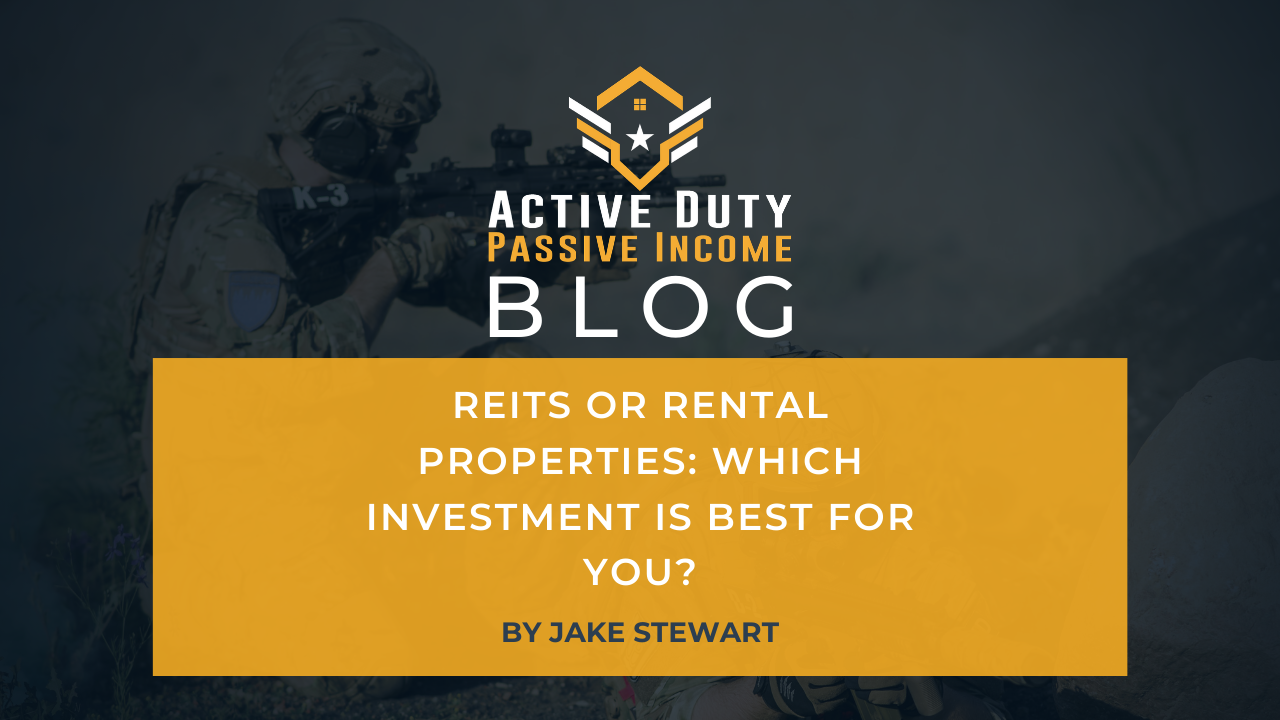REITs vs Rental Property Investing
Getting into real estate in any form is a great way to build up solid passive income. Two great ways to get exposure to this sector are rental properties and Real Estate Investment Trusts (REITs). For definitions of many terms I use in this article, please check out https://beginnerstockinvesting.com/2020/03/19/the-basic-definitions-of-stock-investing/.
A REIT is a company that finances, owns, or operates income-producing properties and is publicly traded on the stock market. These companies can operate in any real estate sector including hotels, single residences, apartment buildings, theme parks, commercial, federal, retail centers, warehouses, data centers, cell towers, medical facilities, etc.
REIT Advantages
The cool thing about REITs is they’re required by law to pay 90% of their profits back to the shareholders in the form of dividends. If you’re familiar with dividends, these REITs usually pay a higher yield than most publicly traded companies–creating a more equal system where you would receive profits rather than physical rental income. Just like a rental property, you can trade through an LLC, but there are far fewer tax write-offs than owning the physical asset. Most lenders require you to put 20% down with a conventional loan, but with REITs, you can get started share-by-share. With free trading, it’s now easier than ever to get started. Some more benefits of buying REITs over physical rentals are the liquidity, no maintenance costs, property management, or the chance of renters destroying your house. It’s truly as passive as it gets, but unfortunately, it isn’t always a dream come true.
How REITs work
You’re reliant on these REITs to manage themselves to increase growth/revenue. Since we’re focused on the dividends, the share price fluctuation makes little to no difference, but if you dollar cost average, this will compound and create massive amounts of wealth. Then, if you pair the dividends with DRIP (Dividend Reinvestment Plan) those shares with increase and compound exponentially. Over time, these reinvested dividends and increased share price will significantly grow your overall portfolio. The stock market generally averages a 10% increase each year with the volatility that can come from any bull/bear market. If you would like more specifics on how the stock market operates and the best ways to invest, visit https://beginnerstockinvesting.com/.
Let’s do some math, shall we? We’ll say the average rental property with a full mortgage can yield $200 per month of profit minus any unforeseen maintenance costs. For the REIT, we’ll pick ticker SPG (Simon Properties Group) which is a stock I recently picked up. Both avenues are subject to market fluctuations and generally follow each other since they are both rental incomes. Keep in mind market crashes are the best time to invest due to low costs. We’ll roughly estimate we have $30,000 for a down payment or stock investment.
Rental Property $200 x 12 months will yield $2,400 per year, but not only are you getting that income, but you are also building serious equity in the home for a renter paying down your mortgage. Every mortgage is significantly different, so I won’t go into detail about equity calculations.
For the REIT, SPG is anywhere from $160-$210 per share. However, due to the most recent market crash, this fantastic stock is only priced at $54. If you were to spend that $30,000 on SPG it would buy you ($30,000/54) 555 shares. Based on the most recent dividend, the expected annual yield is $8.40 per share and would equal $4,662 annually. If you were to DRIP these shares, it would buy you an additional 84 shares the following year. Those 84 additional shares would bring our total up to (555+84)=641. Next year, we would have a dividend of $5,384.40. As you can see, the growth rate of reinvested dividends significantly increases your yield. In our example, the share price returns to an average of $185 (which is very possible based on research). Our total capital on those 555 shares would then equal (555×185) $102,675.
More Comparisons for REIT vs Rental Properties
After looking at the numbers, I can assume that the share price increase follows market fluctuations similar to physical rental property equity. Some advantages for physical properties are that people will always need housing, your property may significantly increase in value (based on renovations/market fluctuation), numerous tax write-offs, and demand of land makes it a moderately safe investment.
A few cons of rental properties might be maintenance costs, bad renters, lack of liquidity, and property management fees. REITs are extremely passive and require little to no work (minus your company research), zero outside costs, and are 100% liquid (you can pull out cash whenever you choose). Disadvantages of REITs would be market fluctuations in share price, shareholder return variations, minimal tax write-offs, and no equity on a physical property.
There are pros and cons to both sets of investments, but the opportunities with either choice can be numerous. Do your research, talk with your team, and make a decision on which one is right for you!
This article was for educational purposes only. Please do not buy a stock anyone recommends without doing the proper research for yourself. Invest with a margin of safety and remember only you are responsible for your financial well-being.








